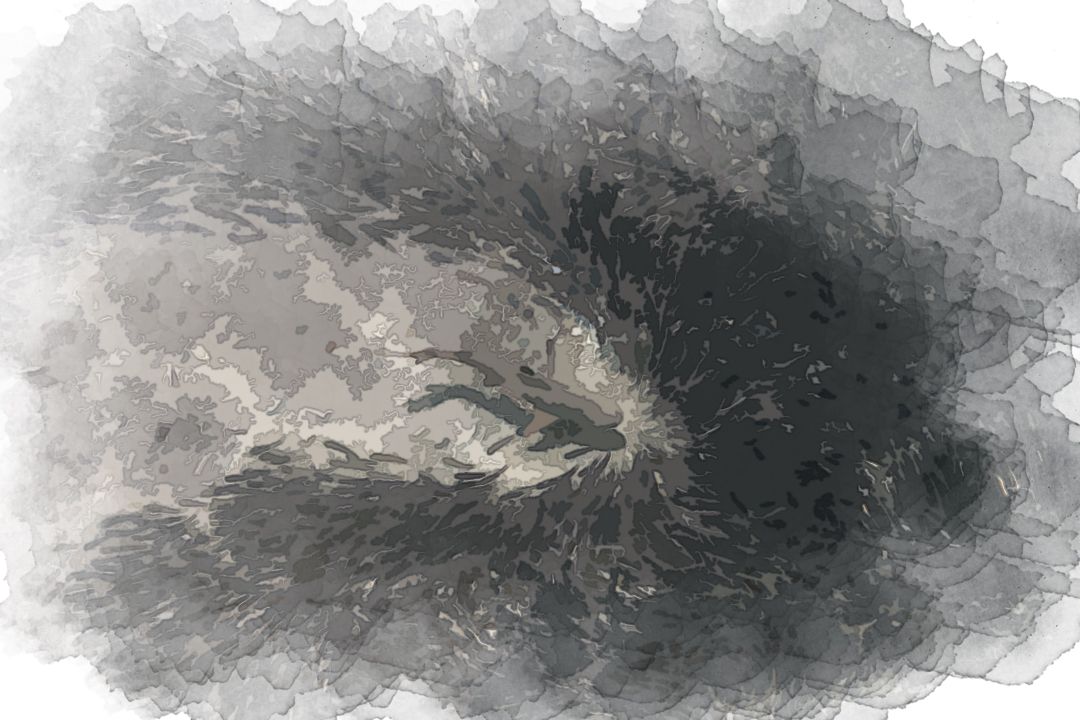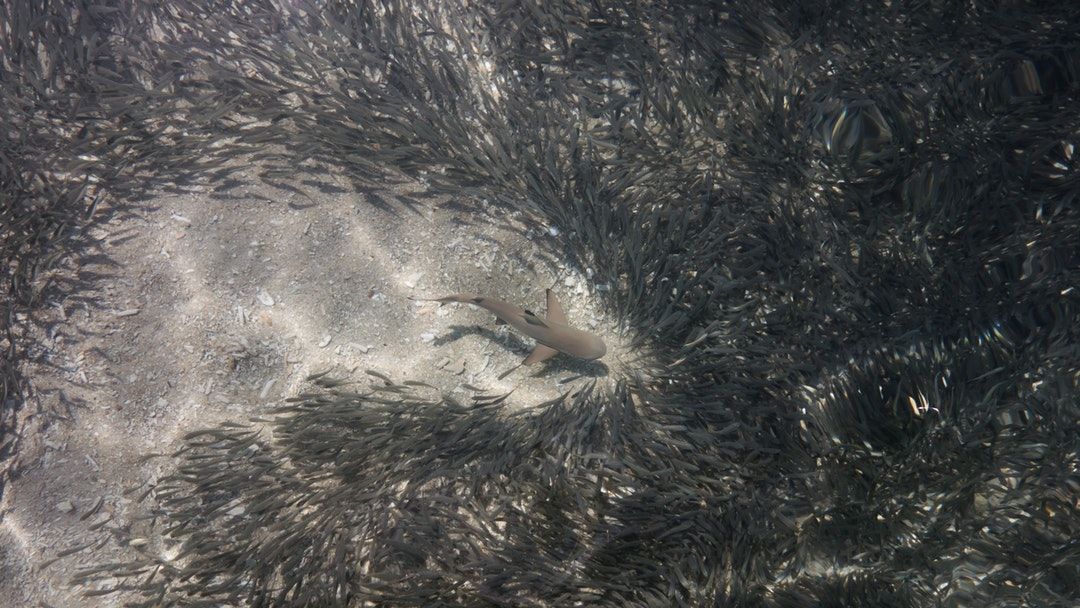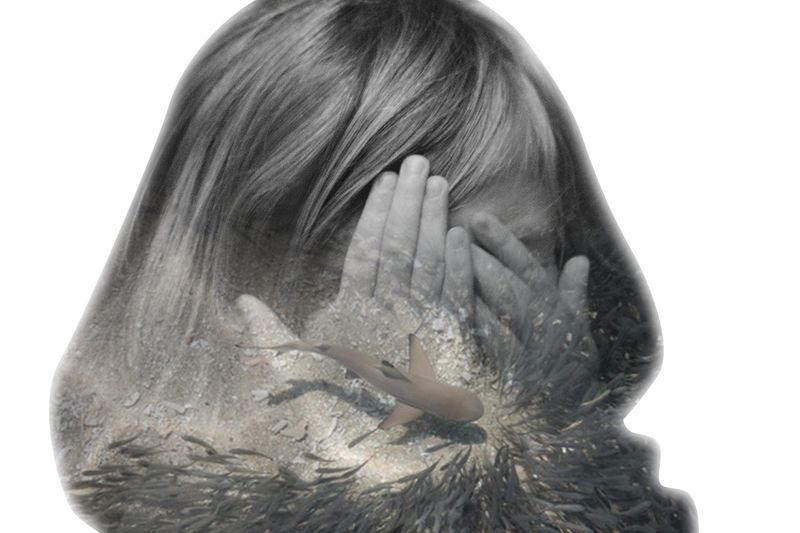More or Less—o sepi to poli

Shark or Swim
In the dappled light that filtered through the undulating surface of the ocean, the dichotomy of existence was laid bare, a tableau vivant of the ocean's unforgiving truths. Here, a shark, the very embodiment of nature’s unvarnished reality, glided with a silent grace that belied the ruthless efficiency of its nature. It was a living contrast, its solitary form against the multitude, a motif as ancient as life itself.
The truth is rarely pure and never simple.
— Oscar Wilde (1854-1900)
Captain Elias, as he leaned against the rail of his boat, a weathered vessel that had seen more seasons than the captain cared to count, watched as the shark below navigated the complexities of life beneath the surface. Its path through the shimmering school of fish was a dance of shadows and light.
Elias had learned that the ocean was much like the people he once knew in the city, full of hidden depths and murky intentions. The fish, for all their synchrony and number, understood the immutable rule of their existence—life was a constant negotiation, an unending gambit between the hunter and the hunted. "O sepi to poli," he often quoted to his wide-eyed grandson, Nikos, during their voyages. This phrase from Aristotle, meaning 'more or less,' taught the boy the shades of meaning and the necessity of balance.
Nikos, with eyes as deep and blue as the Aegean, would spend hours contemplating his grandfather’s words. To him, the ocean was a storybook, each ripple a sentence, each wave a paragraph leading to the next chapter. He understood that the shark was not the villain of this story, nor were the fish mere victims. They were all actors in a grander narrative, each fulfilling their role as nature's inscrutable author had written.
On one sun-bleached afternoon, as grandfather and grandson traced the lines in the water left by schools of fish, an iridescent shimmer caught Nikos's eye. It was a shoal of sardines, moving as one entity, reacting to unseen currents and threats with a collective wisdom. As the shark from before cut through the water, parting the silver mass like a knife through fabric, Nikos reflected on the complexity of truth. He realized that the simplicity of survival held its own form of purity, a straightforwardness that human affairs often lacked.
Years went by, and Nikos grew from the boy at the ship’s rail into a man with his own boat, his own voyages, and his own grandson to whom he passed on the wisdom of the sea.

The planksip Writers' Cooperative is proud to sponsor an exciting article rewriting competition where you can win part of over $750,000 in available prize money.
Figures of Speech Collection Personified
Our editorial instructions for your contest submission are simple: incorporate the quotes and imagery from the above article into your submission.
What emerges is entirely up to you!
Winners receive $500 per winning entry multiplied by the article's featured quotes. Our largest prize is $8,000 for rewriting the following article;

At planksip, we believe in changing the way people engage—at least, that's the Idea (ἰδέα). By becoming a member of our thought-provoking community, you'll have the chance to win incredible prizes and access our extensive network of media outlets, which will amplify your voice as a thought leader. Your membership truly matters!


